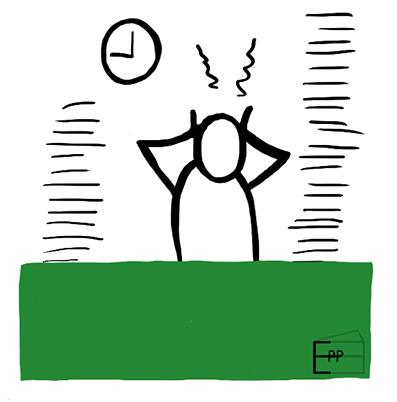This post is guest-authored by Esther Plomp, OLS-3 and 4 mentor.
Open Science should not be a hobby
Academics see their workload increasing, with research activities ending up in their free evenings and weekends. The result is that academia relies on free labour and researchers have little space to reflect and adjust their existing practices. If we already do not have the time to carry out our core activities, how will there be any time left to change practices or improve our current workflows to make them more efficient, sustainable and inclusive in the long run?
“It is incredibly difficult to get anything done — let alone innovate and rethink the way you do things, or a better manager, or try and break down the white supremacy or settler thinking undergirding the institution — when precarity and scarcity are this ubiquitous.” - Anne Helen
“Tasks that serve the academic ethos need to be recognised, valued and factored into academic workloads.” - Marcus Munafo
“.. growing pressures faced by tenured faculty, for example, to secure competitive research grants and to perform well in ranking exercises, absorb time and energy that could be spent addressing [pressing] issues.” - Robin Zheng
Currently, tasks such as service work (committees, peer reviewing, mentoring), Open Science practices and diversity and inclusion efforts are often considered as piling on top of the workload - an extra. In particular, inclusion efforts are often treated like housekeeping, and like housekeeping they are often done by women. While creating inclusive environments is essential for the household (or section/department institute) to thrive, the labour involved is often invisible and done by women and minority groups. If these people will use their expertise, time and energy to create business value they will have fewer resources to spend on their professional development and personal goals when this labour is not paid (by valuing service work in review processes).
“There’s a simple way to make company culture less toxic: Stop asking women, particularly women of color, to do work for which they aren’t paid and which ultimately hurts their careers.” - Joan C. Williams
“If labor is valuable, the university should reward it, and we all should recognize it, too.” - Miriam Posner

If Open Science practises and Diversity and Inclusion efforts are treated as hobbies, we will drive individuals that invest time in this into burnouts (see this video on maintainer efforts in Open Source communities) or out of science (which then disproportionately affects women and individuals from disadvantaged backgrounds). This is especially the case where emotional labour is involved in trying to convince others to learn Open Science practices or to make the working environment more inclusive. This emotional labour drains the energy of the individuals involved.
“I do not have the time or energy to invest in open source any more. I am not being paid at all to do any open source work, and so the work that I do there is time that I could be spending doing ‘life stuff,’ or writing. It is not fair to expect me to do even more work outside of my regular work, and then not get fairly compensated (time or money) for it. It’s also a great recipe for burnout and making me just generally grumpy.” - Ryan Bigg in Nadia Eghbal 2016
If research is not just a hobby, it follows that important practices and processes that facilitate research are also not a hobby. Open Science and diversity efforts contribute to the quality of the research process. They are not ‘nice to have’ but essential to thrive. And like all processes that are essential to the operating business, they need to either be part of the recruitment and performance goals (the system that makes people actually do things), or have a budget.
Thanks
Many thanks to Yo Yehudi, Hao Ye and Patricia Herterich for some of the resources mentioned in this blogpost. Many thanks to Valerie Aurora from Frame Shift Consulting for pointing me to the work by Joan C. Williams.